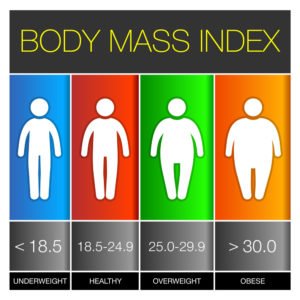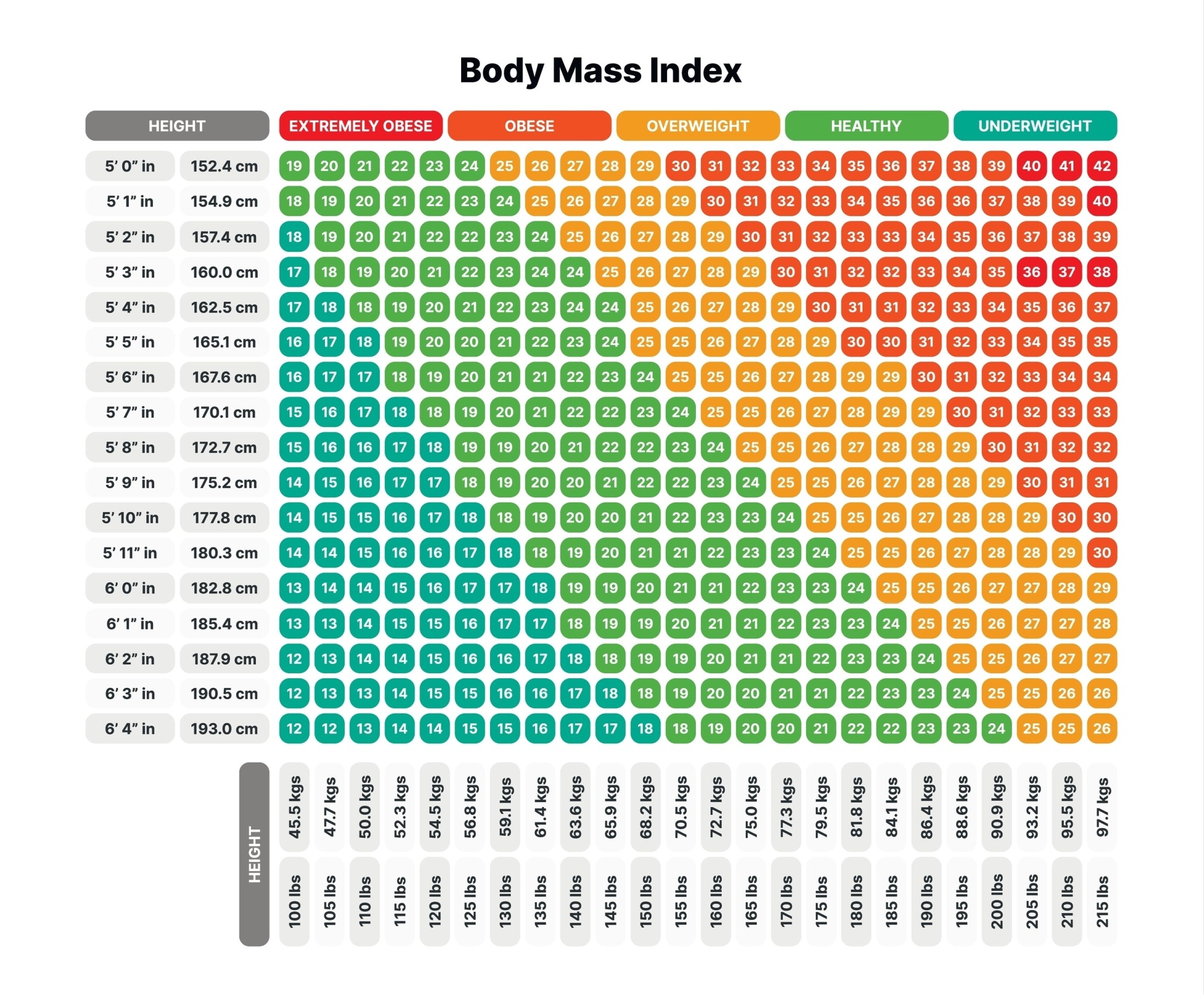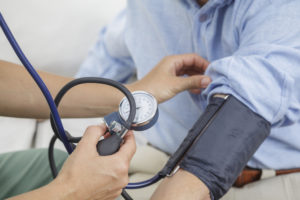What's On This Page?
ToggleDo you want to gain weight or lose weight? Because certain medications can impact your weight.
 Some of you are eating like a bird, and still struggling to lose weight. It dawned on me recently that medications may be at the heart of this. As a pharmacist, I’ve seen it time and time again. Someone comes in looking fit and great, and 6 months later they have 30 pounds on them, and it is out of character, meaning, they’ve been thin all their life.
Some of you are eating like a bird, and still struggling to lose weight. It dawned on me recently that medications may be at the heart of this. As a pharmacist, I’ve seen it time and time again. Someone comes in looking fit and great, and 6 months later they have 30 pounds on them, and it is out of character, meaning, they’ve been thin all their life.
It’s because medications impact your fat-burning switch, or sometimes they shut down your thyroid hormone. Depending on the medication, it might impact serotonin or probiotic status. Counting calories won’t matter.
This article will shed light on why you’re getting heavier and heavier, even though you may be exercising or eating a diet that should keep you slim.
It might relieve some of the guilt you feel for being overweight, and perhaps spark a conversation with your physician about what other treatment options you have.
If you’re taking Ozempic, here’s an article I wrote that you don’t want to miss: From Medication to Mother Nature: Exploring Ozempic and 11 Natural Alternatives for Weight Loss and Blood Sugar Balance.
You can see where you are. If you suddenly gain weight in an unnatural way, it could be your meds. Here, I have posted two graphics to show you Body Mass Index and what the standards are for being underweight, overweight and obese.

Now, I will list the categories of medications that can impact your metabolism.
In no particular order:
Estrogen-containing hormones
This category includes oral contraceptives as well as HRT, hormone replacement therapy. It’s partly because high levels of estrogen cause insulin resistance, and make it harder for you to break down glucose. Your fat cells expand to four times their size. These fake estrogens, as well as pesticides which are also estrogenic, cause a relatively lower amount of testosterone which is needed for lean muscles.
Allergy Medication
This category is big and includes fexofenadine (Allegra), cetirizine (Zyrtec), loratadine (Claritin), diphenhydramine (Benadryl) and others. The reduction in histamine that these medication cause will also cause an increase in appetite, and therefore weight gain. This doesn’t occur from a week or two of usage, but more likely with chronic usage (> 3 months).
A 2010 study found that people taking prescription doses of Allegra and Zyrtec were about 55% more likely to be heavy than those not taking antihistamines. At the end of the day, blocking histamine can interfere with a naturally produced enzyme in your brain that helps control appetite. If you can improve your overall immune function, and minimize dander, pollen and food sensitivities, you might be able to get by without taking antihistamines which cause undesired weight gain.
Antidepressants
For this class, I’m referring to a lot of different medications. Among them, fluoxetine (Prozac), sertraline (Zoloft), paroxetine (Paxil), venlafaxine (Effexor) and mirtazapine (Remeron). The reaction varies, so in some of you, these drugs can cause weight loss during the first few months. However, it’s often short-lived as many users of antidepressants develop a voracious appetite (especially for carbs) after the initial weight-loss effect.
It is certainly bizarre because a rise in serotonin (which occurs with these drugs) is usually associated with appetite suppression and yet, you see dramatic weight gain in people who take antidepressants for more than a year. I suspect it has to do with a rise in TNF alpha, which was shown in 2000, in an article in Neuropsychopharmacology. It’s probably not from leptin, your feel-full hormone, which remains unaltered with both paroxetine and venlafaxine.
Steroids
Hydrocortisone, prednisone and methylprednisone are part of this category and they are popular medications. These corticosteroids are taken by mouth, unlike some of the ones you inhale for the treatment of asthma, so as a result, the oral medications cause more dramatic weight gain. In 2006, a survey showed that about 70% of steroid users gained weight despite trying to exercise and diet. These drugs impact your gut in a tremendous way, and smash levels of intestinal flora (what you think of as probiotics).
Blood Pressure Medications
This category is not cut and dry but many of these drugs can cause a person to gain weight. One class of antihypertensives that induces weight gain is the β (beta) blockers, medications such as metoprolol or propranolol. There are others. The medications are useful for lowering blood pressure and treating heart failure, arrhythmias or coronary artery disease. They dilate the blood vessels (reducing pressure inside of them). Those cause significant weight gain.
If you’d like to read about natural remedies read, 5 Natural Remedies for High Blood Pressure That Really (Really!) Work
Some β blockers are a little bit more selective in terms of their focus and as a result, they don’t cause quite as much weight gain, though the potential exists. These include carvedilol (Coreg) or nebivolol (Bystolic). There was a study that actually compared metoprolol to carvedilol (two popular drugs that go head-to-head marketing-wise). Anyway, about 4.5% of those in the metoprolol group gained greater than 7% of their body weight, whereas about 1% of those taking carvedilol did. So if weight gain is a problem, consider that drug as an option.
There are some antihypertensives that cause weight loss, such as diuretics and this occurs due to the reduction in fluid (blood) volume. ACE inhibitors and ARBs are two other categories of antihypertensive drugs that occasionally lead a person to gain weight. The determining factor here is the exact medication you’re on, and the type of diet you continue to lead.

I know two men who started antihypertensive medication therapy several years ago. One of the guys maintains his slim, fit frame because he is diligent about working out and eating a lot of salads and veggies (plus lean protein). The other man continues to eat a lot of pizza, hamburgers and other junk food… and he’s not only looking more portly in the waist, but his physician has increased his medication dose twice. They just put him on a second antihypertensive medication too.
When I politely poked him and suggested dietary changes to control blood pressure, instead of more fattening foods, and thus, more fat-promoting medications, he said “Ack, whatever Suzy… I’m indestructible you know… and I wanna eat what I want!” He’s already suffered a near death experience with a heart attack. The challenge that comes from this type of ‘indestructible’ thinking leads to relationship problems. I know his wife and she secretly finds him more unattractive than ever.
Antipsychotics Cause a Person to Gain Weight
It would be amazing if we could get to the root of all mental health problems and fix the root cause. Unfortunately, it’s difficult. In America, we live in a day and age where psychoactive drugs are the quick fix for anything going on upstairs. These drugs come with a hefty price tag, deepening on the type. I find it disturbing that Abilify was the top-selling drug in 2014, and lingers at the top. What does that say about us as a country? Some reports suggest that it’s due to using this drug for “depression,” yet the drug is classified as an antipsychotic for schizophrenia.
There are other medications too. For example, Clozapine (Clozaril) and olanzapine (Zyprexa) are second-generation antipsychotics which are used in the treatment of mental health disorders like bipolar disorder and schizophrenia. These second-generation medications cause serious weight gain! Both of these meds have a very high risk of causing weight gain, and both just so happen to bind strongly to the histamine receptor (H1 not H2), and serotonin (5-HT2C not 5-HT1A) receptors. I’m sharing this because a lot of practitioners read me, and will want to know that.

Now, for those of you who take (or took) these medications in the past, you probably already know what I’m about to say. The weight piles on rapidly during the first year, and after that it slows down. Older first-generation antipsychotics have a different set of side effects, but the weight problems are not as bad. There is no clear relationship between the amount of weight gained and the dose of the medication. We do know that a 2005 study concluded that 30% of Zyprexa users gained 7% or more of their body weight in the first year and a half!
The reason for the weight gain is complicated but for sure, these drugs have strong antihistamine activity, and they also reduce serotonin. These changes might make you want to eat through your fridge. Remember, serotonin is normally your natural antidepressant. You make it in your gut, but you can also take it as a drug (think Zoloft, and read above about antidepressants).
Abilify (aripiprazole) was pitched as a weight-neutral antipsychotic, however, it does cause weight gain in some people.
Insulin
The weight gain can be dramatic if you take insulin, and it doesn’t matter the type. I might get debated on this point because some of you have possibly lost a little bit of weight while taking insulin (possibly due to your diet restrictions or lifestyle changes), but I feel comfortable saying that for probably 95% of you, insulin increases weight. And it can be rather dramatic. There is, in fact, a direct correlation between total insulin dose, and the amount of weight gain. The more insulin you inject, the more weight you will gain. Insulin use leads to obesity.
About half of the weight gain you experience will occur in the first 3 or 4 months. It’s such an irony too if you think about it. Insulin is used to treat diabetes, which is frequently associated with obesity, and insulin is the drug used to treat diabetes, but it causes more obesity.
Weight gain is going to occur as a regular side effect of taking insulin, you can’t get around it easily. While necessary at times, insulin helps escort sugar out of the blood and into your cells (where you want it), insulin is still leading to weight gain and this has been shown in our most prestigious journals. Do everything you can if you have pre-diabetes, or diabetes so you can avoid the need for insulin. As an aside, glyburide (which raises insulin) also causes weight gain.
If you are diabetic and struggle to find healthy meals, please check out my FREE ebook by clicking on the image below:
The Solution
Do you think you’re medication is causing you to gain weight? Hopefully this article has helped you identify the culprit.
The solution is to avoid the use of these types of medication unless absolutely necessary. I am a believer in holistic, herbal, alternative and dietary solutions… all should be tried (with true commitment) before implementing medications. I know the commercials on TV make it look so easy, but it’s not really. Rethink your choices before saying yes to a prescription. When you take medications, you impact hundreds of metabolic pathways in a profound (and sometimes irreversible) way.
Obviously, if you take these medications, please do commit to a healthy exercise regimen and continue on a clean low fat, low carb diet. But hopefully reading this will give you some peace and the realization that it’s not your fault, and that another medication might exist that isn’t associated with as much weight gain. It’s a good conversation to have with your doctor.

Suzy Cohen, has been a licensed pharmacist for over 30 years and believes the best approach to chronic illness is a combination of natural medicine and conventional. She founded her own dietary supplement company specializing in custom-formulas, some of which have patents. With a special focus on functional medicine, thyroid health and drug nutrient depletion, Suzy is the author of several related books including Thyroid Healthy, Drug Muggers, Diabetes Without Drugs, and a nationally syndicated column.


